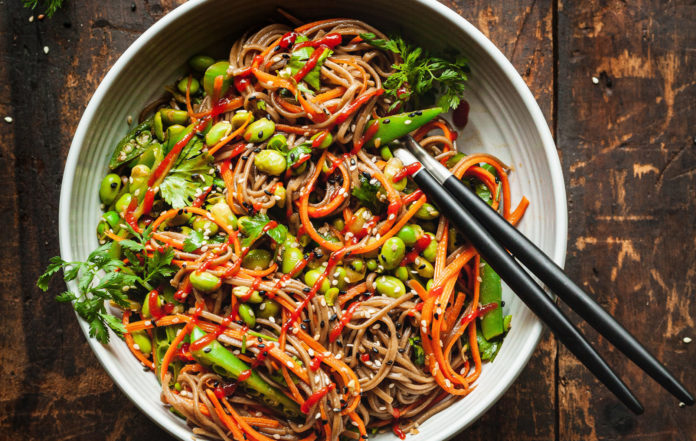Water soluble:
B1: ham, soymilk, watermelon, acorn squash.
B2: milk, yogurt, cheese, whole and enriched grains and cereals.
B3: meat, poultry, fish, fortified and whole grains, mushrooms, potatoes.
B5: chicken, whole grains, broccoli, avocados, mushrooms.
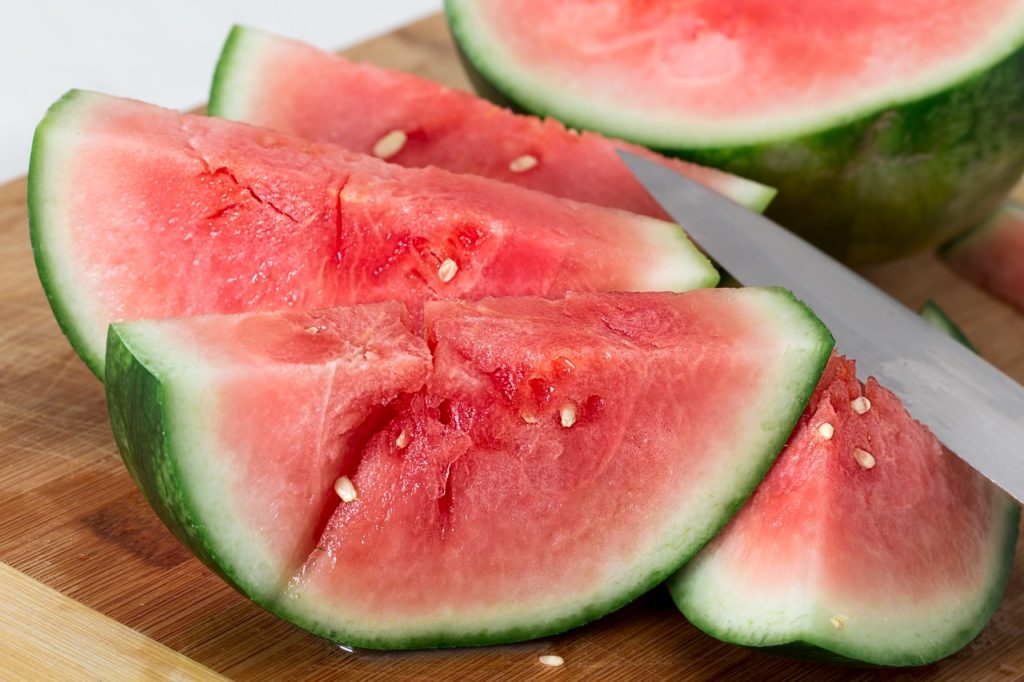
B-6: meat, fish, poultry, legumes, tofu and other soy products, bananas.
B-7: Whole grains, eggs, soybeans, fish.
B-9: Fortified grains and cereals, asparagus, spinach, broccoli, legumes (black-eyed peas and chickpeas), orange juice.
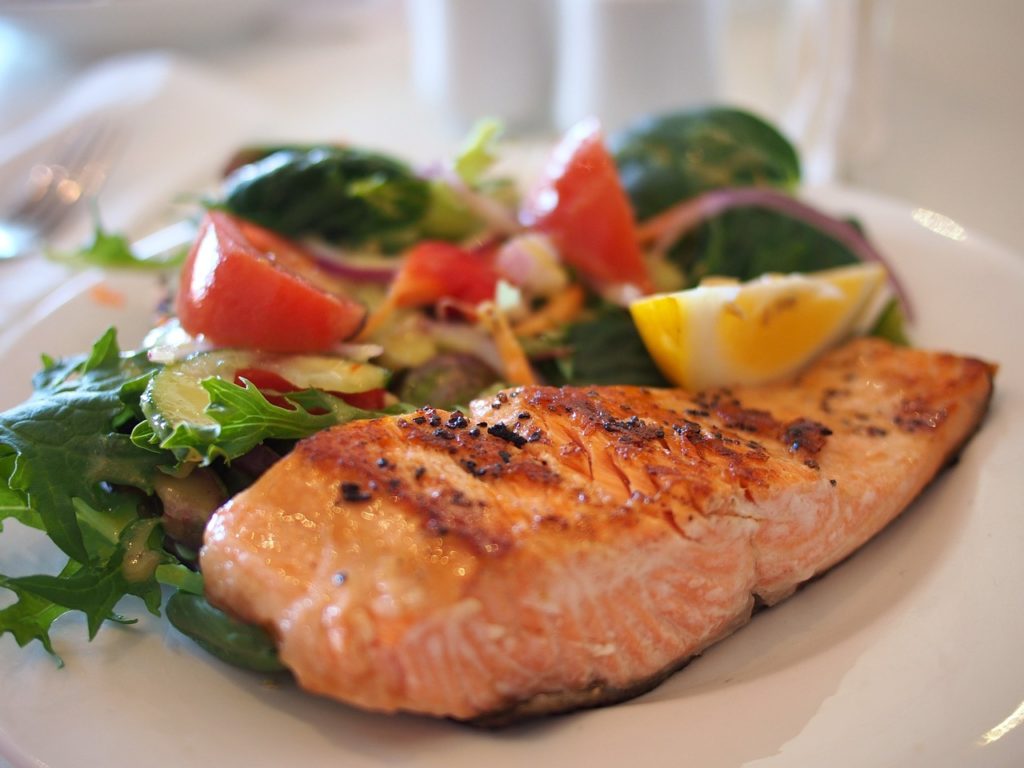
B12: Meat, poultry, fish, milk, cheese, fortified soymilk and cereals.
Vitamin C: Citrus fruit, potatoes, broccoli, bell peppers, spinach, strawberries, tomatoes, Brussels sprouts.
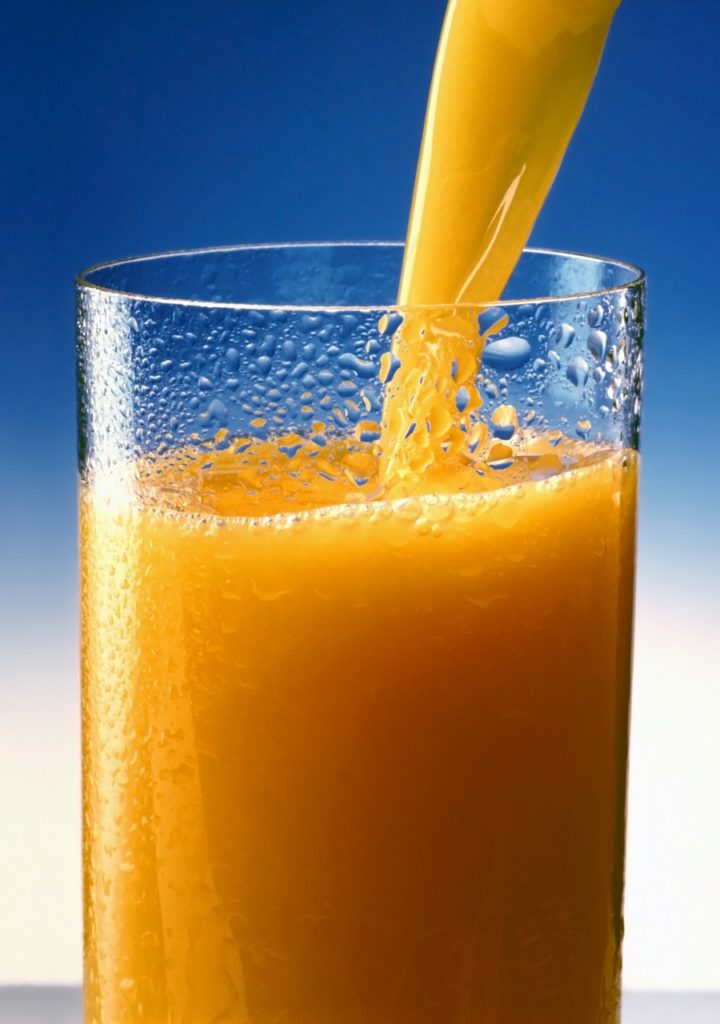
Fat soluble:
Vitamin A: beef, liver, eggs, shrimp, fish, fortified milk, sweet potatoes, carrots, pumpkins, spinach, mangoes.

Vitamin D: Fortified milk and cereals, fatty fish.
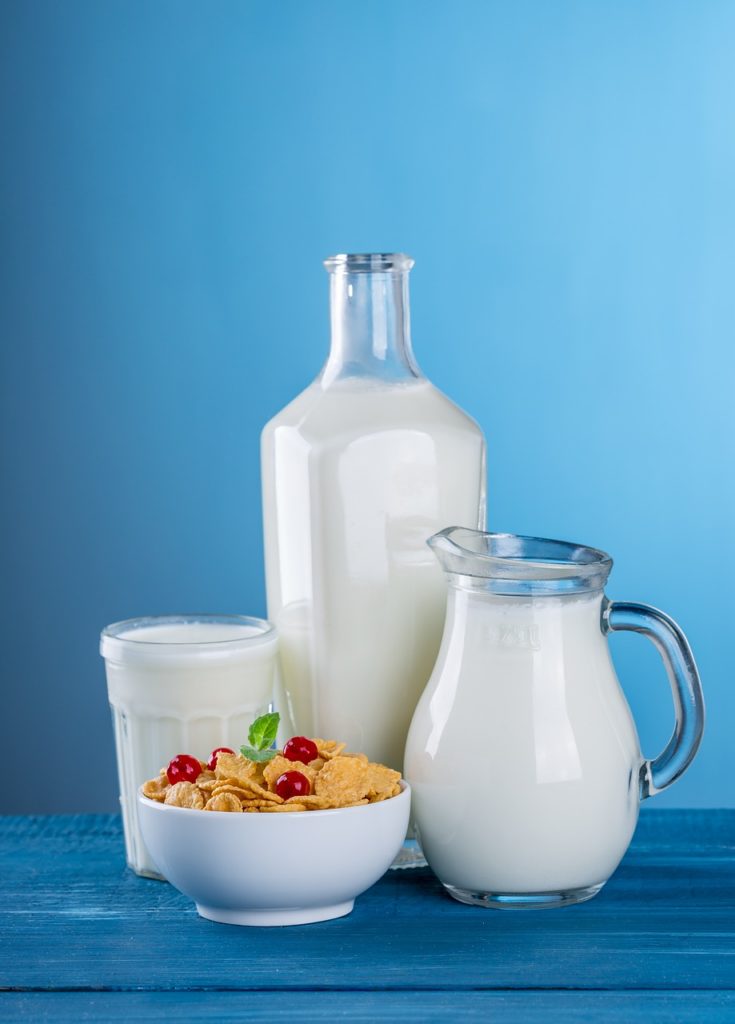
Vitamin E: vegetables oils, leafy green vegetables, whole grains, nuts.
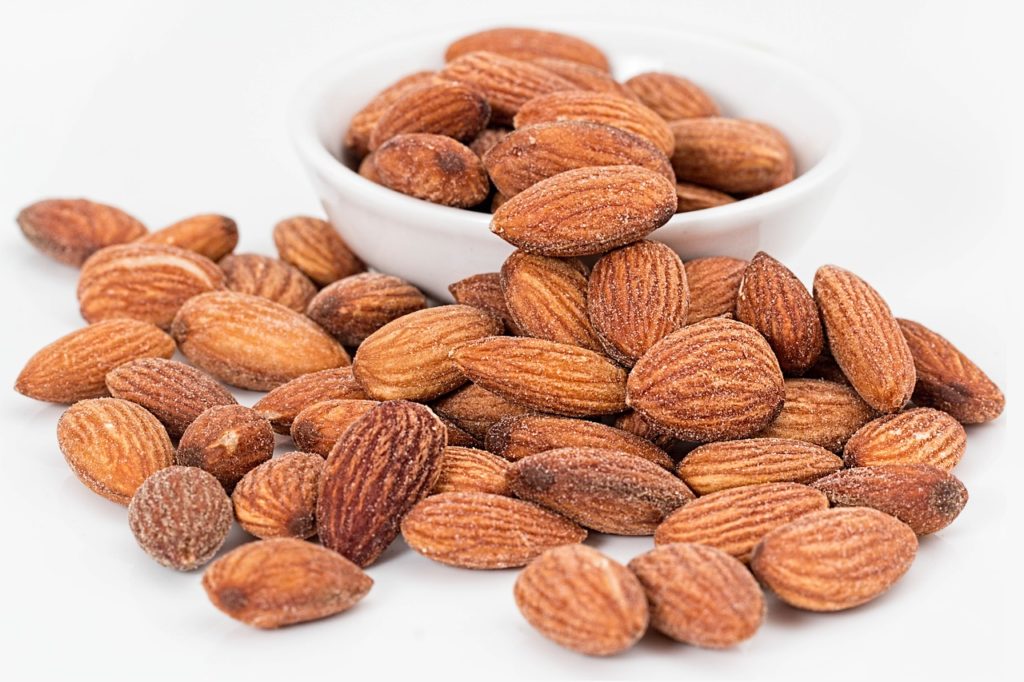
Vitamin K: Cabbage, eggs, milk, spinach, broccoli, kale.
Major:
Calcium: yogurt, cheese, milk, salmon, leafy green vegetables.
Chloride: salt.
Magnesium: Spinach, broccoli, legumes, seeds, whole-wheat bread.
Potassium: meat, milk, fruits, vegetables, grains, legumes.
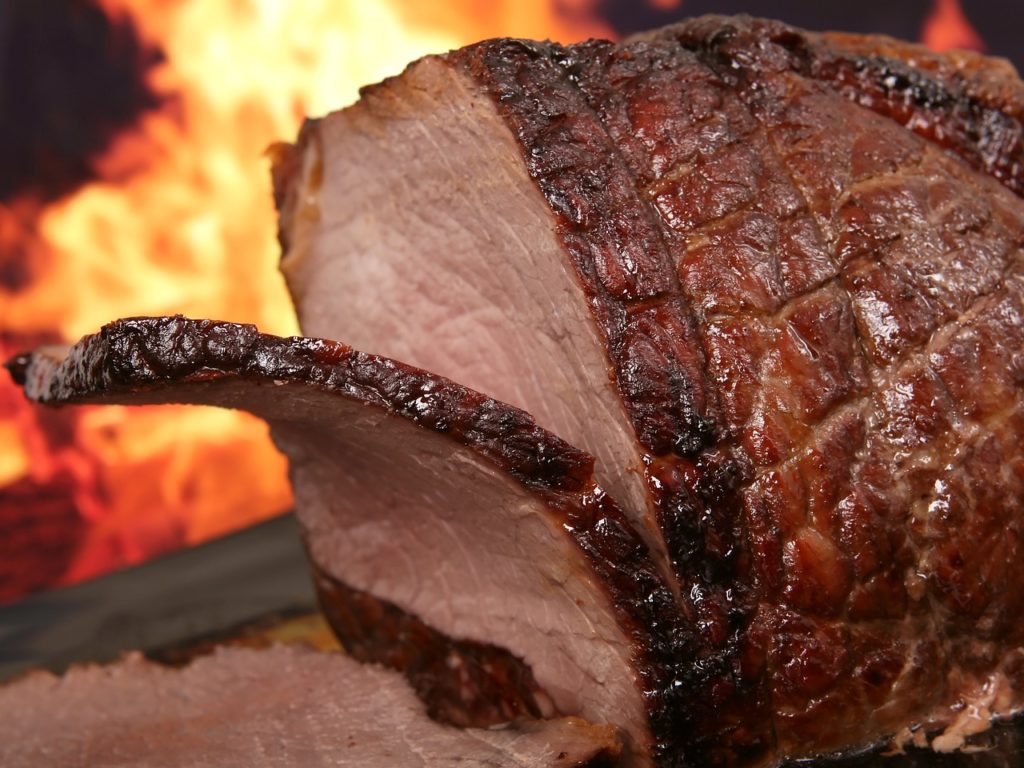
Sodium: salt, soy sauce, vegetables.
Trace:
Chromium: meat, poultry, fish, nuts, cheese.
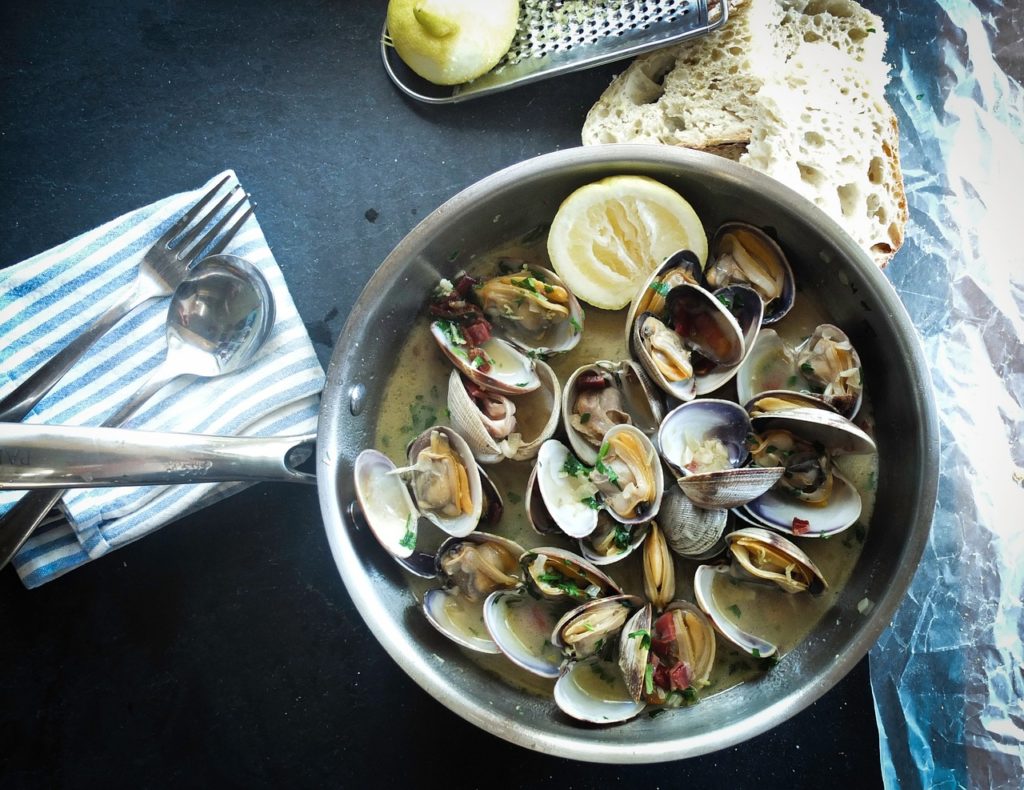
Copper: shellfish, nuts, seeds, whole-grain products, beans, prunes.
Fluoride: fish, teas.
Iodine: Iodized salt, seafood.
Iron: red meat, poultry, eggs, fruits, green vegetables, fortified bread.
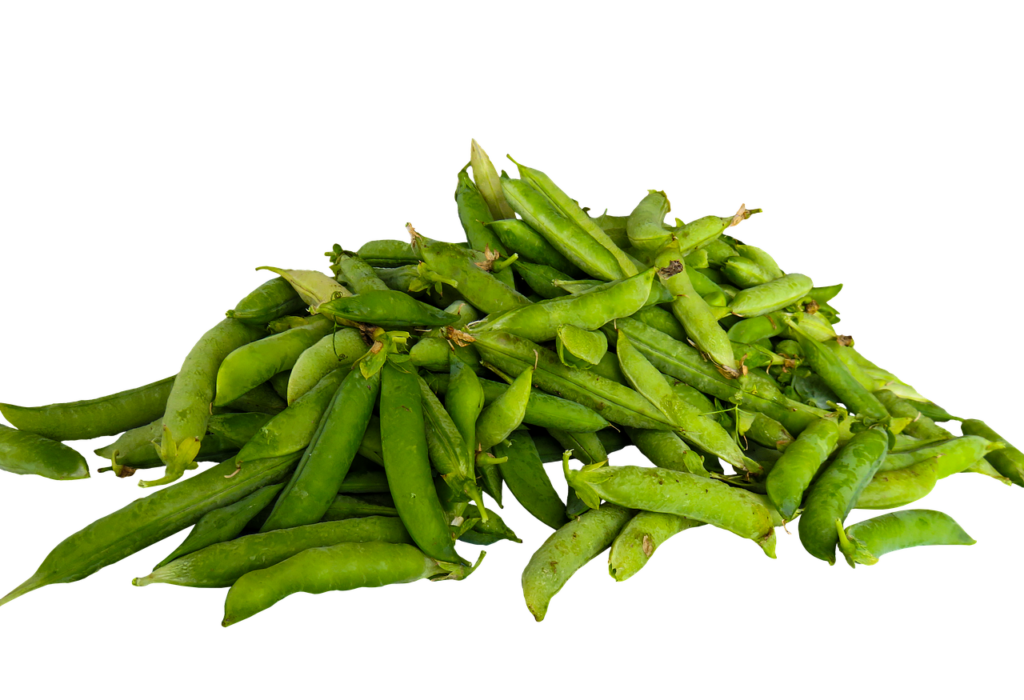
Manganese: nuts, legumes, whole grains, tea.
Selenium: Organ meat, seafood, walnuts.
Zinc: meat, shellfish, legumes, whole grains.
– By Matthew Solan
Executive Editor, Harvard Men’s Health Watch.
Vitamins should not be used as a substitute for eating healthy food, but only as supplementation.
Most people don’t eat balanced diets. According to a national survey, over half of all Americans don’t drink a glass of juice, eat one serving of vegetables, or eat a piece of fruit daily. Only 40% eat 3 to 5 servings of vegetables daily, the recommended amount.
Only 20% eat the recommend 2 to 4 servings of fruit each day. For those not eating and getting the nutrition they need, supplementation is better than nothing.
© Copyright – Hector Sectzer













